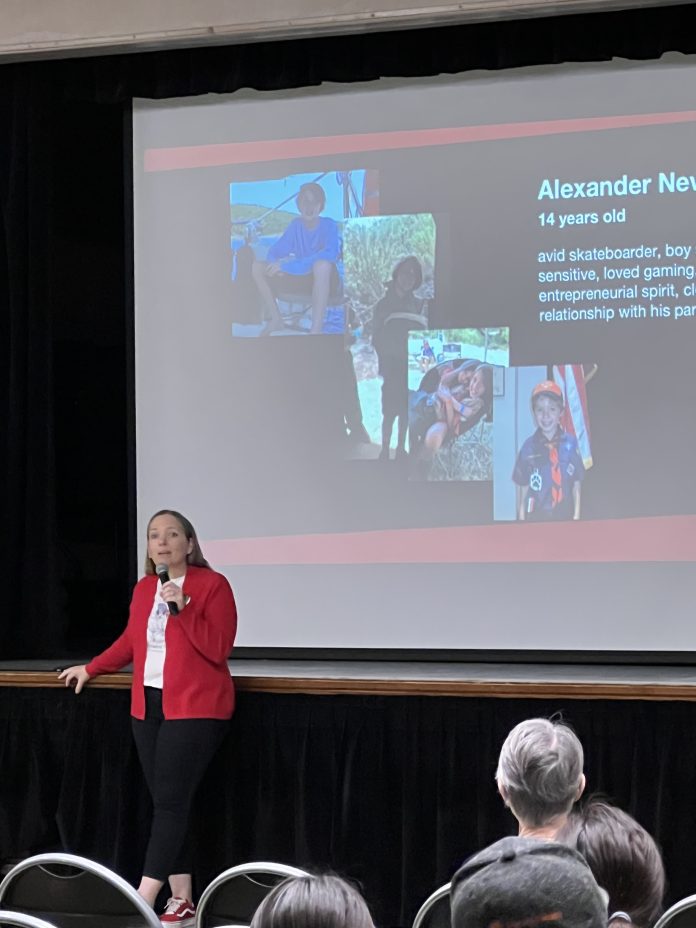By Rosemary Lewallen
Amy Neville, head of the Alexander Neville Foundation, spoke on Oct. 25th at the Facts on Fentanyl Forum to a group of about 65 parents and teens at St. Irenaeus’ Parish Hall. The dramatic documentary film, “dead on arrival,” was shown after a welcome by Jennifer Dagarag, St. Irenaeus’ Faith Community Nurse. Pastor, Fr. Binh Nguyen, offered an opening prayer. Then, Amy Neville, whose son, Alexander, died of fentanyl poisoning at age 14, presented stark statistics about fentanyl.
We learned that one pill containing fentanyl can kill a grown person. It is “a powerful synthetic opioid, similar to morphine, but 50-100 times more powerful.” Fentanyl is odorless and tasteless and more addictive than heroin. Doctors prescribe fentanyl for pain in micrograms, not grams. The maximum dose is 75 micrograms. However, it is also distributed illegally as a powder or pill that looks the same as prescription drugs. Fentanyl creates feelings of euphoria, but can lead to slowed breathing, chest rigidity, slowed heart rate, unconsciousness, coma, and death. Between 2020 and 2022 there was a 70% increase in fentanyl-related deaths. In Orange County, fentanyl was the leading cause of death of teens age 17 or younger in 2021. There has been a 1800% increase in fentanyl deaths since 2016.
It is not unusual for teens in junior high and high school to experiment and seek new experiences. They are curious, smart, but often impulsive. It is estimated that 44% of high school students are likely to try drugs. Unfortunately, the poor choice of taking even one pill containing fentanyl is often lethal. Amy discussed the ease of purchasing illicit drugs like OxyContin, Xanax and Percocet on social media sites like Snapchat. That’s what Alexander Neville did. He thought he was buying OxyContin online, but the street drug delivered to his home contained a deadly amount of fentanyl. Amy tearfully told Alexander’s story. Her mission is to prevent this tragedy from happening to other families.
The take-away messages to teens were to remember what they had seen and heard that evening, seek help from a trusted adult, and never take anything not prescribed for them. Amy advised that Naloxone, the antidote to fentanyl, be a normal part of our first aid kits because you never know whose life you may save. She suggested that parents take the time to find out what’s motivating their kids, empathize with them, don’t minimize their problems, but listen and try to understand. It’s also helpful to find out what they already know about drugs.
The Alexander Neville Foundation is a non-profit organization that promotes peer-to-peer youth education and spreading drug awareness. All work is pro-bono. If you are interested in more information, see info@anfhelp.org. If you would like Amy Neville to share her experience and knowledge about fentanyl and other drugs with your organization, you can contact her at amy@anfhellp.org or 480-213-3705.

